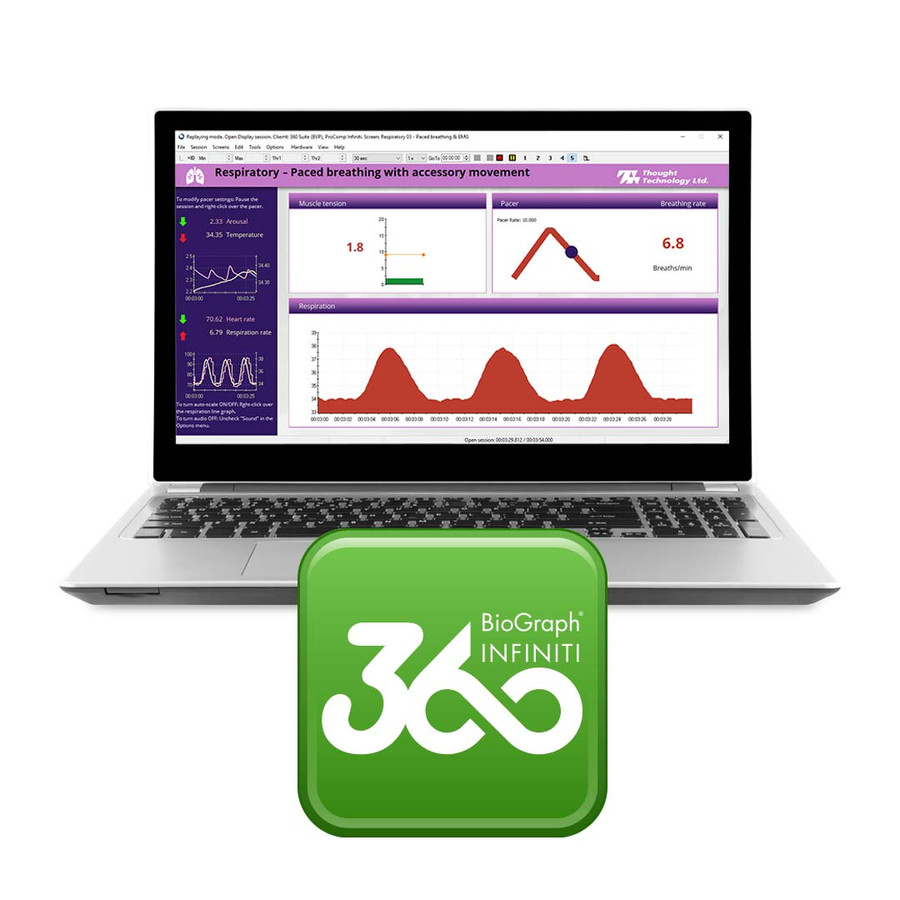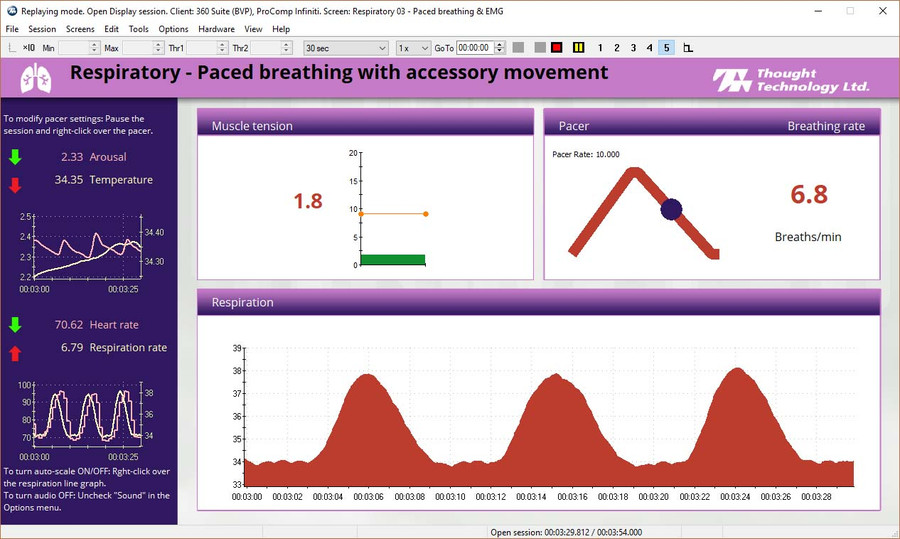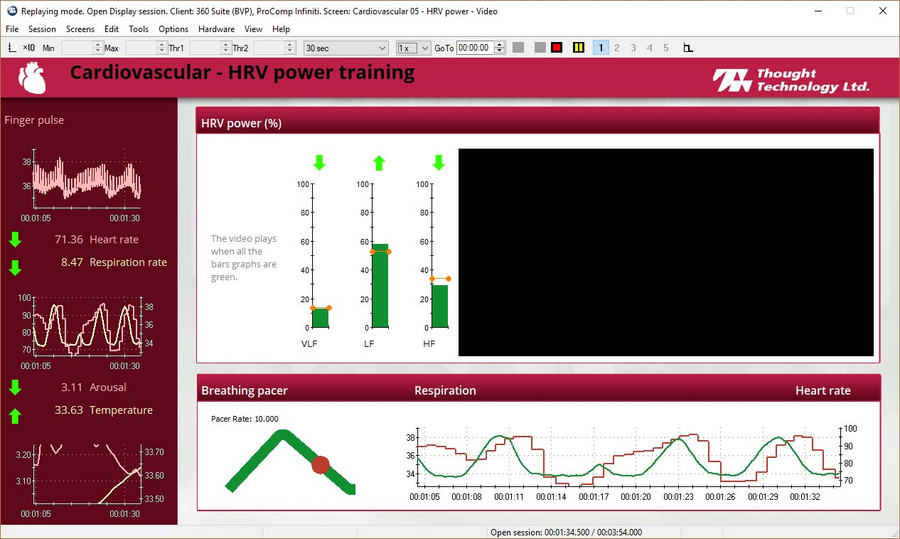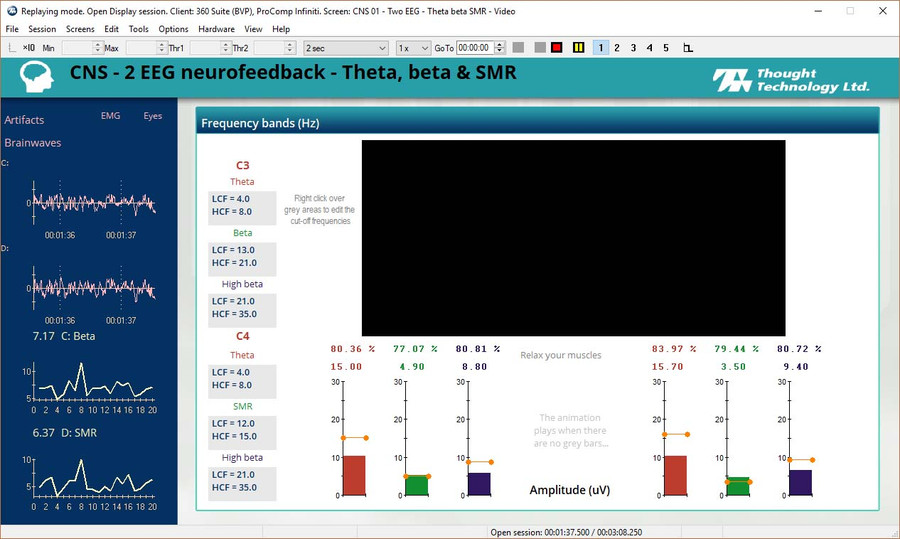360 Suite

The 360 suite is a complete package of physiological monitoring and self-regulation tools designed for health care professionals who want to incorporate psychophysiological methods into their practice.
The suite combines classic physiological biofeedback (arousal and peripheral temperature) with heart rate variability training (HRV) and neurofeedback protocols (EEG biofeedback) into one integrated package.
The suite’s broad selection of tools includes:
- Specialized physiological assessments
- Self-regulation training screens
- Biofeedback assisted relaxation therapy sessions
The 360 Suite was designed with a number of priorities in mind, all intended to help you integrate biofeedback and neurofeedback methods into your practice with ease.
Easy to understand and use
The 360 Suite doesn’t assume a high level of experience with physiological monitoring and biofeedback equipment. Predefined Quick Start sessions allow you to get up and running within minutes. A complete reference manual helps you learn how to use the hardware and software without difficulty.


Clinically relevant
The 360 Suite is designed from a clinical perspective and its biofeedback and neurofeedback tools are arranged and organised in a way that parallels clinical thinking. This makes locating the best tool for the task as intuitive as possible and greatly reduces the initial learning curve.
Organized by body system
Based on your client’s presenting complaint, you can determine what body system is most affected and pick the appropriate assessment and self-regulation tool for the task.


Key body systems
- Muscular: Issues related to subconscious muscle tension and how it can be the source of stiffness and body aches and pains.
- Autonomic nervous system (ANS): Issues related to the stress response and how it manifests through rising arousal (sweaty hands) and lowering peripheral temperature (cold hands).
- Respiratory: Issues related to breathing patterns (breath holding, shallow breathing, etc.) and how they may reflect anxiety and mental restlessness.
- Central nervous system (CNS): Issues related to changing states of mind (sleepiness, mental agitation, lack of focus, etc.) and the ebb and flow of dominant brainwave frequencies.
- Cardiovascular: Issues related to the sympathetic and parasympathetic nervous systems and how they affect heart rate variability (HRV).





